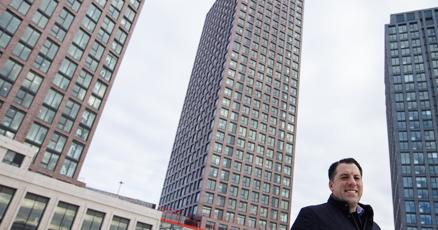In a city where the rental landscape keeps evolving, Toronto’s property developers are getting creative. The latest trend? Private healthcare services packaged with your lease agreement.
I was walking through Liberty Village last week when I noticed a sleek new rental building with an unusual amenity advertised on its window display: “Exclusive healthcare concierge for residents.” This piqued my journalistic curiosity immediately.
It turns out several major Toronto developers are now offering private healthcare benefits as rental incentives, moving beyond traditional perks like free months or gym memberships. This shift represents a fascinating evolution in how rental properties compete for tenants in our competitive market.
“We’re seeing developers recognize that today’s renters value holistic living experiences that extend beyond just the physical space,” explains Maria Gonzalez, Toronto Housing Market Analyst at Urban Solutions Group. “Healthcare access has become a premium differentiator in the high-end rental market.”
The Medici Group, behind three luxury developments in downtown Toronto, recently partnered with Maple, a virtual healthcare provider, offering tenants signing 18-month leases unlimited virtual doctor consultations. Their Forest Hill property launched this program in January, and leasing velocity increased by approximately 22% compared to their previous development.
Bentall GreenOak’s newest midtown project includes a staffed medical office in the building one day per week – an amenity that comes with a premium of roughly $175-$200 monthly on rental rates. Despite the higher cost, their pre-leasing phase secured commitments for 68% of available units, significantly outpacing market averages.
According to Toronto Rental Market Survey data, buildings offering healthcare amenities are seeing about 15% faster occupancy rates than comparable properties without such services.
These healthcare perks aren’t just appearing in luxury buildings. Mid-market developments are testing similar concepts, with scaled versions of healthcare packages. One King West development offers tenants digital healthcare subscriptions at a group rate, while another Parkdale complex provides quarterly on-site wellness clinics.
“It’s a win-win situation,” says Dr. Sarah Chen, healthcare innovation consultant with the Toronto Health Network. “Residents get convenient access to care while property managers see higher tenant satisfaction and retention. In today’s healthcare climate, skipping the wait times at walk-in clinics is a legitimate selling feature.”
Critics point out these services may create a two-tiered healthcare reality in Toronto’s rental market. “We’re concerned about normalizing premium healthcare access based on where you live,” notes Alejandro Rodriguez from the Housing Equity Alliance. “This trend potentially widens the gap between those who can afford these amenities and those who cannot.”
The data suggests these healthcare perks resonate most strongly with specific demographics. According to RentSeeker’s 2024 Toronto Renter Preference Study, millennial professionals and downsizing baby boomers show the highest interest in healthcare amenities, rating them among their top five desired features.
Walking through these new developments, I’ve noticed the marketing heavily emphasizes peace of mind. One sales center I visited in the Entertainment District featured testimonials from current residents highlighting how on-site healthcare services influenced their rental decisions.
“After spending three hours at a walk-in clinic last year for a simple prescription, having a doctor available through my building’s app in minutes feels revolutionary,” reads one resident quote prominently displayed.
From a business perspective, these healthcare offerings also benefit developers by potentially reducing tenant turnover. The average cost of tenant turnover in Toronto premium rentals ranges between $4,200-$6,500 per unit, according to Canadian Apartment Magazine’s industry analysis. Even a modest reduction in turnover can significantly impact a property’s profitability.
The City of Toronto hasn’t formally addressed this trend in its housing policy frameworks, but some urban planners suggest these private healthcare amenities raise important questions about the intersection of housing and essential services.
“We need to consider what it means when basic needs like healthcare become amenities bundled with housing,” explains Professor Raymond Wong from the University of Toronto’s Urban Planning Department. “This trend reflects broader systemic issues in both our housing and healthcare systems.”
For renters navigating Toronto’s competitive market, these healthcare perks present both opportunity and complexity. While they offer genuine value, they also introduce another factor to consider when comparing rental options.
As I left a recent rental open house in the Distillery District, I overheard a prospective tenant asking detailed questions about the building’s telemedicine program. The conversation highlighted how these offerings are becoming normalized parts of the rental discussion in Toronto.
Whether this trend represents a temporary marketing strategy or a permanent shift in rental amenities remains to be seen. What’s clear is that Toronto’s rental market continues to evolve in unexpected ways, reflecting broader societal priorities and challenges.
For now, if you’re apartment hunting in Toronto in 2024, don’t be surprised if your potential landlord wants to talk about your health as much as your credit score.







